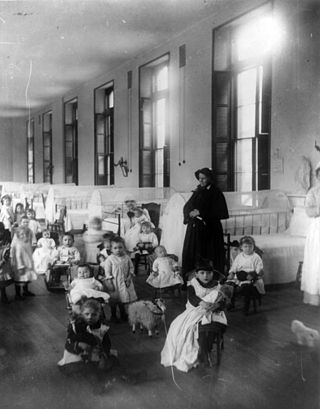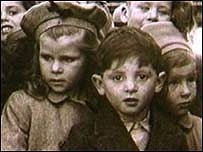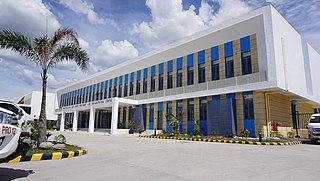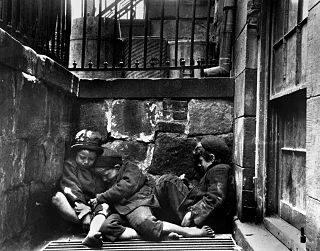Advantages
The main advantages of community-based care are as follows:
Cost-effectiveness: community-based care for orphans is a more cost-effective approach to orphan care because the emphasis is not on providing resources from outside, but rather identifying the existing resources in a community and building on those.
Community participation: There is an extremely high degree of community participation in community-based care programs because the onus is on communities to care for their own orphans. Extended families will frequently take sole responsibility for many orphans, using their own resources to provide accommodation, food, clothing, education and nurture. Neighbors and local organizations such as churches often make a tangible contribution by helping out struggling families with adolescent minding, advice and other contributions.
Connectedness: Community-based care allows adolescents to connect with others in their community.
Examples
Africa: The FOCUS program run by Family AIDS Caring Trust in Zimbabwe has mobilized community volunteers to visit and encourage more than 4000 orphans.
THOKOMALA Orphan Care Organization in South Africa places six adolescents with a house mother in their community of origin re-creating family life for these adolescents. Everything is funded entirely through donations: https://web.archive.org/web/20120312190626/http://www.thokomala.org.za/
Bethany Children's Trust http://www.bethanychildrenstrust.fsnet.co.uk/index.htm has community-based care projects for orphans in Rwanda, South Africa, Uganda and Mozambique reaching thousands of orphans.
The Global Interfaith Partnership http://www.globalinterfaithpartnership.com provides multiple services for orphans and vulnerable children in western Kenya which insure food security, safe housing, uninterrupted education, and healthy psychosocial development.
Asia: Project HALO http://www.urbanhalo.org (Hope, Assistance and Love for Orphans) run by Servants to Asia's Urban Poor http://www.servantsasia.org in Cambodia has mobilized the community to care for more than 1000 orphans.

Adoption is a process whereby a person assumes the parenting of another, usually a child, from that person's biological or legal parent or parents. Legal adoptions permanently transfer all rights and responsibilities, along with filiation, from the biological parents to the adoptive parents.

An orphanage is a residential institution, total institution or group home, devoted to the care of orphans and children who, for various reasons, cannot be cared for by their biological families. The parents may be deceased, absent, or abusive. There may be substance abuse or mental illness in the biological home, or the parent may simply be unwilling to care for the child. The legal responsibility for the support of abandoned children differs from country to country, and within countries. Government-run orphanages have been phased out in most developed countries during the latter half of the 20th century but continue to operate in many other regions internationally. It is now generally accepted that orphanages are detrimental to the emotional wellbeing of children, and government support goes instead towards supporting the family unit.

Foster care is a system in which a minor has been placed into a ward, group home, or private home of a state-certified caregiver, referred to as a "foster parent" or with a family member approved by the state. The placement of the child is normally arranged through the government or a social service agency. The institution, group home, or foster parent is compensated for expenses unless with a family member. In some states, relative or "Kinship" caregivers of children who are wards of the state are provided with a financial stipend.
Residential care refers to long-term care given to adults or children who stay in a residential setting rather than in their own home or family home.
Kinship care is a term used in the United States and Great Britain for the raising of children by grandparents, other extended family members, and unrelated adults with whom they have a close family-like relationship such as godparents and close family friends because biological parents are unable to do so for whatever reason. Legal custody of a child may or may not be involved, and the child may be related by blood, marriage, or adoption. This arrangement is also known as "kincare" or "relative care." Kinship placement may reduce the number of home placements children experience; allow children to maintain connections to communities, schools, and family members; and increase the likelihood of eventual reunification with birth parents. It is less costly to taxpayers than formal foster care and keeps many children out of the foster care system. "Grandfamily" is a recently coined term in the United States that refers to families engaged in kinship care.
Spurgeons is a large national children's charity in the United Kingdom, working with vulnerable families, children and young people. It is based in Rushden, with several offices in the UK, and is a registered charity.
Child protective services (CPS) is the name of a government agency in many states of the United States responsible for providing child protection, which includes responding to reports of child abuse or neglect. Some states use other names, often attempting to reflect more family-centered practices, such as department of children and family services (DCFS). CPS is also sometimes known by the name of department of social services, though these terms more often have a broader meaning.

Children's Aid, formerly the Children's Aid Society, is a private child welfare nonprofit in New York City founded in 1853 by Charles Loring Brace. With an annual budget of over $100 million, 45 citywide sites, and over 1,200 full-time employees, Children's Aid is one of America's oldest and largest children's nonprofits.

A residential treatment center (RTC), sometimes called a rehab, is a live-in health care facility providing therapy for substance use disorders, mental illness, or other behavioral problems. Residential treatment may be considered the "last-ditch" approach to treating abnormal psychology or psychopathology.
Child and family services is a government or non-profit organisation designed to better the well being of individuals who come from unfortunate situations, environmental or biological. People who seek or are sought after to participate in these homes have no other resource to turn to. Children might come from abusive or neglectful homes, or live in very poor and dangerous communities. There are also agencies that cater to people who have biological deficiencies. Families that are trying to live in stable lives come to non-profit organisations for hope of a better future. Child and family services cater to many different types of people who are all in different situations. These services might be mandated through the courts via a governmental child protection agency or they might be voluntary. Child and family services may be mandated if:

Childhelp is a US non-profit organization dedicated to the prevention and treatment of child abuse. Founded in 1959 as International Orphans, Inc. by Sara O'Meara and Yvonne Fedderson, Childhelp is one of the largest non-profit child abuse prevention and treatment organizations in the nation. It operates facilities in California, Virginia, Tennessee, and Arizona. The Childhelp National Child Abuse Hotline services all of the United States, its territories and Canada. The organization also distributes Childhelp Speak Up Be Safe, a school-based abuse and bullying prevention program.

Forestdale, Inc. is a non-profit agency that provides foster care, preventive and other family services in New York City. It is located in the Forest Hills section of Queens.

Wartburg Mount Vernon Inc. is a non-profit, Lutheran organization located in Mount Vernon, New York that provides a continuum of care to older adults through residential and community-based programs and services. Wartburg was founded in 1866 as an orphanage and farm school and began serving older adults in 1898. As the foster care system took hold in the mid-1900s, Wartburg gradually phased out the orphanage and by 1979, its focus was solely on serving the elderly.

Deinstitutionalisation is the process of reforming child care systems and closing down orphanages and children's institutions, finding new placements for children currently resident and setting up replacement services to support vulnerable families in non-institutional ways. It became common place in many developed countries in the post war period. It has been taking place in Eastern Europe since the fall of communism and is now encouraged by the EU for new entrants. It is also starting to take hold in Africa and Asia although often at individual institutions rather than statewide. New systems generally cost less than those they replace as many more children are kept within their own family. Although these goals have been made internationally, they are actively being working towards as reform and new reforms are put into practice slowly as is fit for each country.

Foster care is the term used for a system in which a minor who has been made a ward is placed in an institution, group home, or private home of a state certified caregiver. The placement of the child is usually arranged through the government or a social-service agency. The institution, group home or foster parent is provided compensation for expenses.
Catholic Guardian Services (CGS) is a human services non-profit organization sponsored by the Catholic Charities of the Archdiocese of New York with programs that help a large needy population in the New York metropolitan area.
Graham Windham is a private nonprofit in New York City that provides services to children and families. It was founded in 1806 by several prominent women, most notably Elizabeth Schuyler Hamilton. As of 2015, the organization has received greater awareness because of Lin-Manuel Miranda's hit Broadway musical Hamilton in which Eliza Hamilton expresses that she is "proudest of" establishing "the first private orphanage in New York City."
Residential child care communities or children's homes are a type of residential care, which refers to long-term care given to children who cannot stay in their birth family home. There are two different approaches towards residential care: The family model and the shift care model.
Chapin Hall at the University of Chicago is a policy research institution at the University of Chicago that focuses on child welfare and family well-being. Chapin Hall is funded through social service systems, foundations, and non-profit organizations. The organization's focus areas include child welfare and foster care systems, youth homelessness, and community capacity to support children, youth, and families. Chapin Hall is an affiliated research center of the University of Chicago.
Out-of-home placements are an alternative form of care when children must be removed from their homes. Children who are placed out of the home differ in the types and severity of maltreatment experienced compared to children who remain in the home. One-half to two-thirds of youth have experienced a traumatic event leading to increased awareness and growing literature on the impact of trauma on youth. The most common reasons for out-of-home placements are due to physical or sexual abuse, violence, and neglect. Youth who are at risk in their own homes for abuse, neglect, or maltreatment, as well as youth with severe emotional and behavior issues, are placed out of the home with extended family and friends, foster care, or in residential facilities. Out-of-home placements aim to provide children with safety and stability. This temporary, safe environment allows youth to have their physical, mental, moral, and social needs met. However, these youth are in a vulnerable position for experiencing repeated abuse and neglect.









